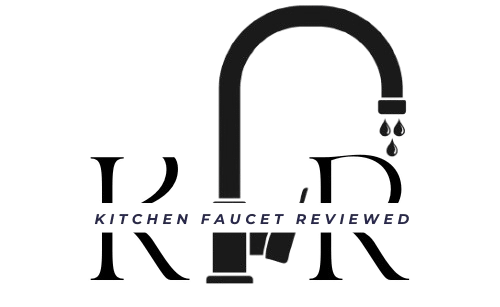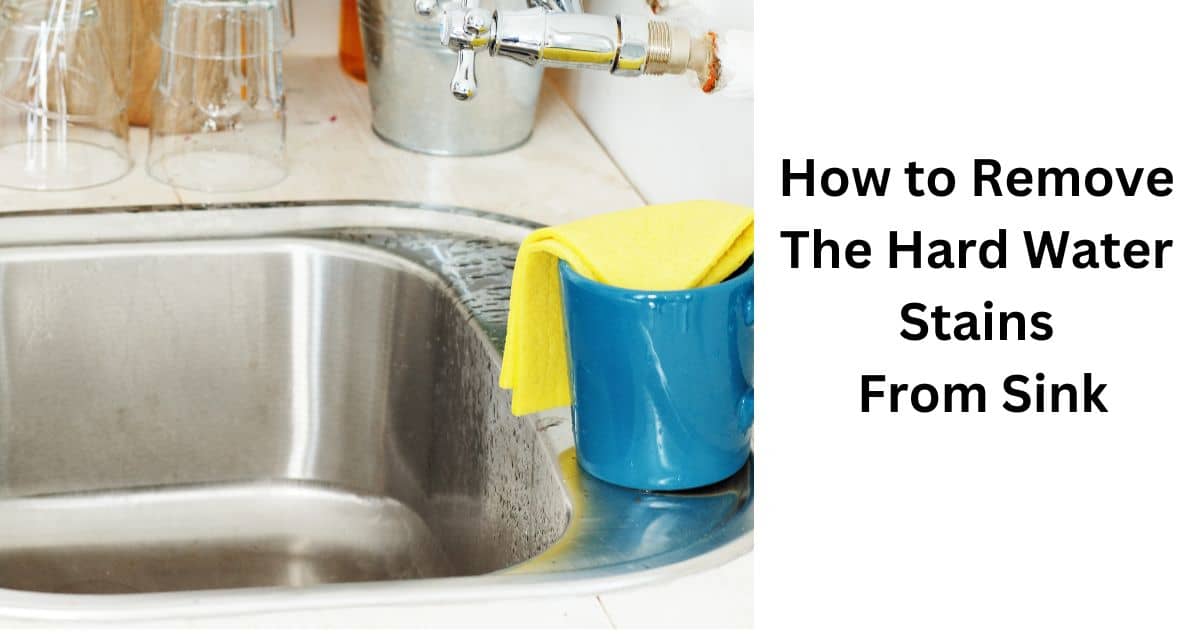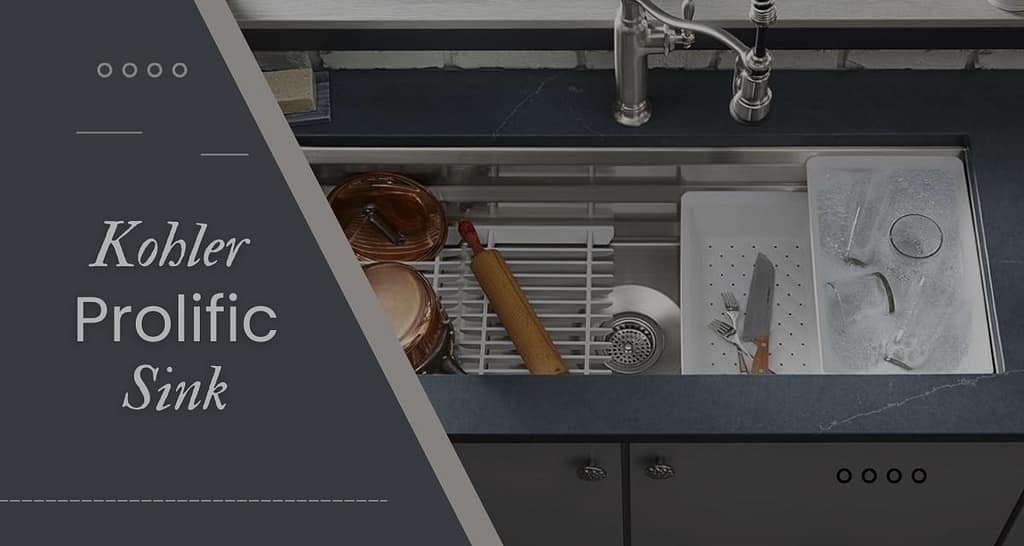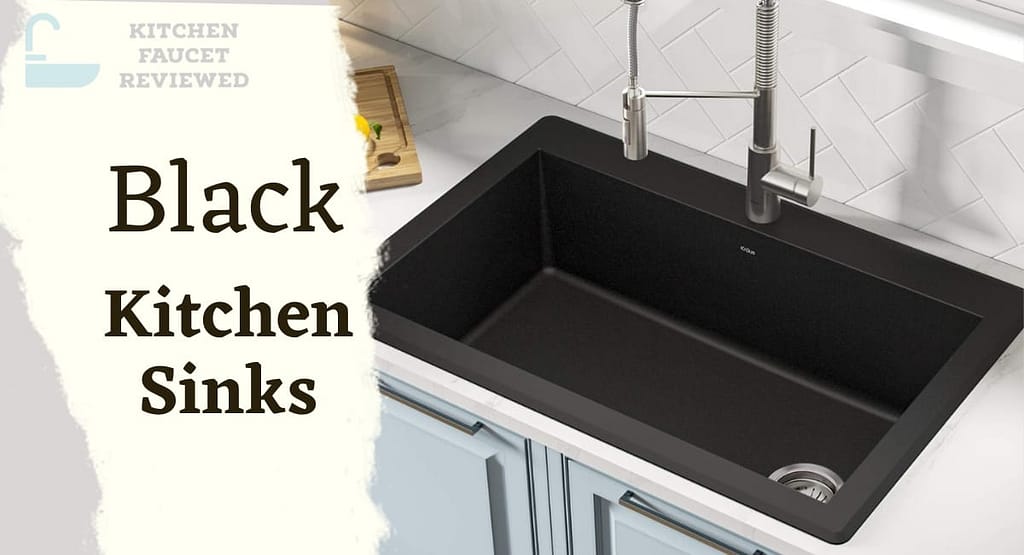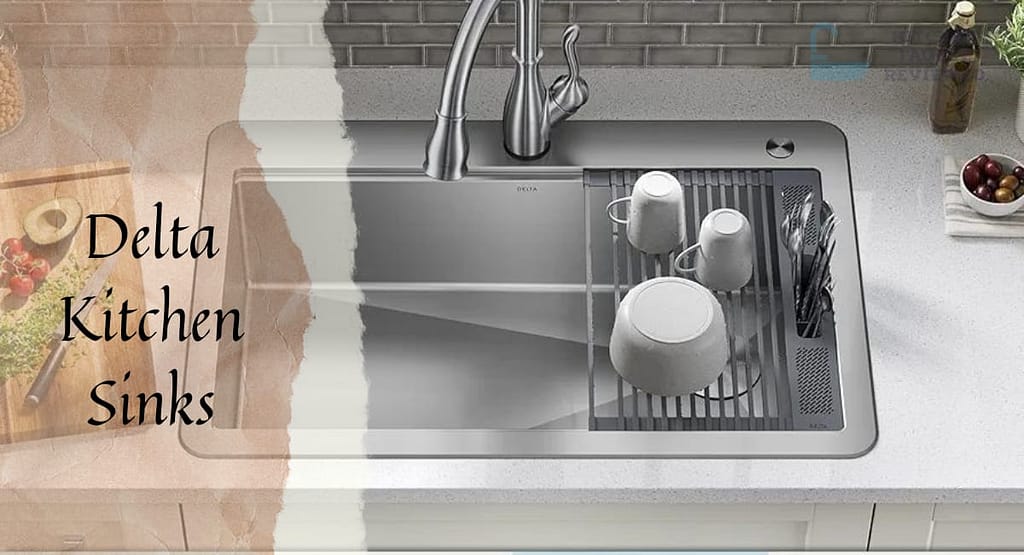How Can You Remove The Hard Water Stains From Sink?
We all know that a sink is a large fixed container in every kitchen with faucets.
But with a plain, ordinary sink comes the hassles of clogged drains, leaky faucets, low water pressure, and broken garbage disposal. No one wants to deal with all of that.
Keep this in mind, you just made the right decision to add a stainless steel sink to your new home’s kitchen. Good decision!
A treated or stainless steel sink is a sink made by twisting or beautifying the steel to a consistency. The result is a deeply strong sink!
In the following paragraphs, we will talk about every owner’s main concern: how to remove limescale stains on the stainless steel sink.
How to remove hard water stains on the stainless steel sink?
Stainless steel sinks are strong and very easy to clean. They’re a great way to add capacity and style to almost any kitchen. They are also very affordable for home or commercial use.
These sinks are made from an exceptionally erosion-resistant hardened steel that is stain-resistant and easy to clean.
Honestly, the benefits of using stainless steel are endless. You didn’t even think that something could go wrong with him.
But then came the trouble with hard water stains! Do you see the irony? The Hard water stains on your stainless steel kitchen sink. Unfortunately, that is the threat of hard water.
Hard water is rich in degraded minerals, usually calcium and magnesium.
You may have literally felt the effects of hard water on your last clean. Depending on the hardness of your water, you have most likely felt a film of residue
on your hands.
Dear reader, remember that hard water can cause various problems with your pipes and machines. Likewise, it can affect the presence of stainless steel surfaces in your home, with your sink being the primary target.
Hard water stains can look in the following facts:
- There are visible stains on your dishes when taking them out of the dishwasher or washing them in the sink.
- Feels like a film on my hands after washing. It is caused by the cleaner reacting with calcium to form cleaner dirt. You may need to wash your hands longer provided the water is hard.
- The water pressure has dropped. Mineral reserves can frame the lines, shorten the interior distance between the lines, and slow the flow of water.
Your concerns are fully justified. But put your worries to rest because below I have suggested some answers to the most frequently asked questions on how to remove limescale stains on stainless steel. These suggestions are very actionable and practical for everyone.
How Can You Remove The Hard Water Stains From Sink
Potassium bicarbonate, generally known as baking soda
As a housekeeper, baking soda is your closest and best companion. It is useful for myriad applications including hard water stains and limescale removal. It’s 100% safe as it works without damaging your sink.
Here are some quick steps to put baking soda into action:
- Start by cleaning your sink wash to remove dirt.
- Now sprinkle baking soda around the sink.
- Scrub the sink with a soft cloth or an old toothbrush.
- Be careful to scrub with the grain of the steel
- Wash finally baking soda out.
Vinegar or acetic acid if you want to sound nerdy
Vinegar is one of the best and most flexible cleaning agents on the market and is ideally the best answer to how you clean Limescale stains on the stainless steel sink.
You already have stretchy gloves, a bottle of water, a cloth, and an extra toothbrush, so you won’t have any trouble removing limescale stains in your sink.
Here are the basics to keep your sink spotless:
- First, fill a shower bottle with a balanced amount of vinegar and water.
- Next, rinse the kitchen sink under running water.
- Now spray the vinegar fix around the kitchen sink.
- Then leave it to work Soak for 15 minutes.
- Wipe the area with a washcloth.
- Finish, and wipe with a damp cloth.
Club Soda or Sparkling Water
Sparkling water, Carbonated water, or club soda whatever you call it, is water that contains broken-down carbon dioxide, either mistakenly infused under stress or due to regular topographic cycles.
Club soda will also easily do the trick for luminosity. After inserting the stopper into your sink, pour some soda water on it and wipe it down with a fine cloth. Wipe dry with a fine cloth as usual to avoid water stains and surface rust.
A saline solution: salt plus water
A saline solution is a compound of salt and water.
You’ll be surprised at how effective this simple technique is. Just follow the instructions below:
- Mix glue with table salt and water.
- Use a microfiber material to rub the glue onto the stains.
- Clean immobile until darkness disappears.
- Clean the stained area using a clean damp cloth.
- Dry your kitchen sink with paper towels.
Summary
If you’ve read the blog this far, you can assume that you are now well acquainted with the fact that hard water stains will do horrific damage to your new stainless steel sink.
The logic is simple. If you don’t remove hard water stains, you risk long-term damage to your sink. In addition to magnesium and calcium, hard water often also contains iron.
If you leave hard water stains on the outer shell of your sink, it can rust. Oxidation causes oxidation.
Imagine the worst-case scenario: if your treated steel sink gets rusty enough, it will eventually start leaking! That’s why routine cleaning and drying of your stainless steel kitchen sink will keep it in pristine condition and prevent a much more difficult problem that isn’t too far away.
We hope this guide has helped you by now know exactly how to remove hard water stains on your stainless steel sink.
Plus, does a quick light cleaning every time you use it to keep your sink looking great Always remove deposits before they dry out, and never leave liquids on for too long.
In general, constantly drying your sink does amazing things to protect against surface rust stains and out of the water.
FAQs
1. What causes hard water stains on sinks?
Hard water stains on sinks are caused by the presence of minerals like calcium and magnesium in the water supply. When the water evaporates, these minerals are left behind, creating unsightly stains on the surface of the sink.
2. How do I know if my sink has hard water stains?
Hard water stains often appear as white or chalky deposits on the sink’s surface. They can be particularly noticeable around faucets and drains. If you notice a build-up that is difficult to remove with regular cleaning, it is likely hard water stains.
3. What are some effective home made ways for removing hard water stains?
There are several home remedies you can try to remove hard water stains. One popular method is using a mixture of white vinegar and water. Apply the solution to the stains, let it sit for a few minutes, and then scrub gently with a sponge or cloth. Another option is to make a paste using baking soda and water and scrub the stains with it. Both methods can help dissolve and remove the mineral deposits.
4. Are there any commercial products specifically designed to remove hard water stains from sinks?
Yes, commercial products that are specifically formulated to remove hard water stains are available. Look for products that are designed for use on sinks or have descaling properties. Follow the instructions on the packaging for the best results.
5. Can I prevent hard water stains from forming on my sink?
While you may not be able to prevent hard water stains completely, there are steps you can take to minimize their occurrence. Consider installing a water softener system in your home to reduce the mineral content in the water. Regularly wiping down the sink after each use and using a mild detergent can also help prevent the build-up of stains.
6. Are there any professional services available to remove hard water stains from sinks?
If home remedies and commercial products don’t yield the desired results, you can consider hiring a professional cleaning service. They have specialized tools and techniques to effectively remove hard water stains and restore the shine to your sink.
